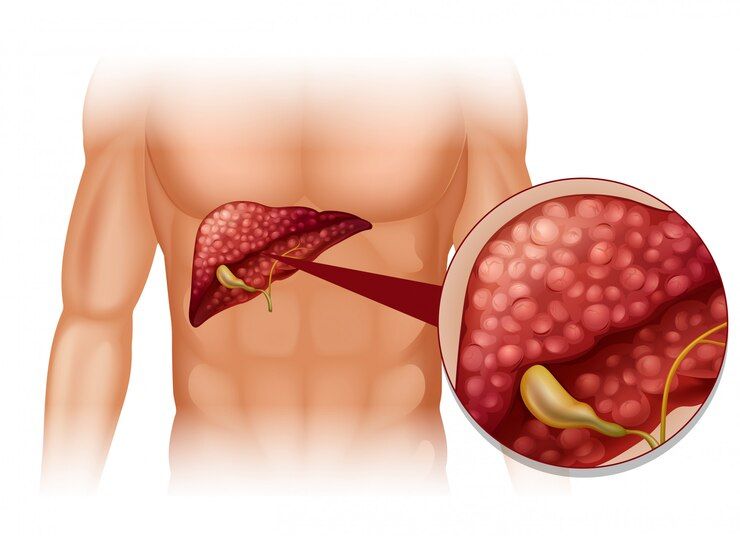Decluttering your life is more than just tidying up; it’s about creating a space and mindset that foster happiness and well-being. This comprehensive guide will walk you through the steps to declutter both your physical and mental spaces, leading to a more fulfilling and joyful life.
Understanding Clutter
What Is Clutter?
Clutter isn’t just a pile of stuff lying around. It’s anything that occupies space unnecessarily and disrupts your sense of order. This can range from physical items like old clothes and unused gadgets to mental and digital clutter such as unresolved tasks and unorganized emails. Clutter acts like static in your life, making it hard to find peace and focus.
The Different Types of Clutter: Physical, Mental, and Digital
- Physical Clutter: This includes all tangible items that take up space and create messes, like clothing, books, and household items that aren’t regularly used.
- Mental Clutter: These are the thoughts, worries, and obligations that cloud your mind, preventing you from focusing on the present and enjoying life.
- Digital Clutter: Your devices can also be cluttered with unnecessary files, apps, and messages that make finding what you need more difficult and disrupt your digital life.
The Psychology of Clutter
How Clutter Affects Your Mind and Emotions
Living in a cluttered environment can lead to feelings of stress and anxiety. It bombards your senses with excessive stimuli, making it hard to relax and focus. Clutter can also evoke feelings of guilt and frustration, especially when you can’t keep up with organizing it. Over time, this can wear down your mental health and contribute to a sense of overwhelm.
Clutter and Stress: A Scientific Insight
Research supports the idea that clutter contributes to stress. Studies from UCLA have shown that women with cluttered homes have higher cortisol levels, a hormone associated with stress. This constant state of low-level stress can negatively affect both your mental and physical health, leading to issues like anxiety, depression, and even weight gain.
Benefits of Decluttering
Enhanced Mental Clarity
When your environment is clean and organized, your mind can be too. Decluttering helps remove distractions, making it easier to concentrate on tasks and think clearly. This clarity can lead to better decision-making and a greater sense of peace.
Improved Physical Health
A clutter-free space is easier to clean and less likely to harbor dust and allergens, which can improve your overall health. You’ll find it easier to move around and maintain your home, reducing the risk of accidents and promoting a more active lifestyle.
Boosted Productivity
An organized environment leads to increased productivity. You can find what you need faster and have a clear space to work, allowing you to focus better and get more done. This is especially beneficial for those who work from home or need a clear space for creative activities.
Strengthened Relationships
Clutter can create tension and arguments among family members or roommates. It can also make you feel embarrassed to have guests over. By decluttering, you create a more harmonious living environment and improve your social interactions.
Getting Started with Decluttering
Setting Clear Goals
Before you dive into decluttering, it’s important to set clear, achievable goals. What do you want to accomplish? Is it a more organized home office, a tranquil bedroom, or a streamlined wardrobe? Having specific objectives will keep you focused and motivated.
Creating a Decluttering Plan
Break down your decluttering tasks into manageable steps. A room-by-room approach can be effective, or you might prefer to tackle specific categories, like clothes or books. Make a schedule that fits into your life, so you don’t get overwhelmed.
Decluttering Your Physical Space
Room-by-Room Decluttering
Each area in your home presents unique challenges. Here’s how to approach them:
- The Kitchen: Start by clearing out old food, unused gadgets, and duplicate utensils. Organize your pantry and cabinets so you can easily find what you need. This will make cooking more enjoyable and efficient.
- The Bedroom: Your bedroom should be a sanctuary. Remove items that don’t belong, like paperwork or laundry, and keep surfaces clear. Focus on creating a peaceful environment conducive to rest and relaxation.
- The Living Room: Tidy up entertainment areas and manage cords and cables. Ensure that everything has a place, from remote controls to magazines, to keep the area inviting and comfortable.
Decluttering Tips for Specific Items
- Clothing: Only keep clothes that you love and wear regularly. Sort through your wardrobe and donate or recycle items that no longer fit or suit your style.
- Papers and Documents: Sort through your papers and shred what you don’t need. Use labeled folders to organize important documents and keep them easily accessible.
- Sentimental Items: These can be the hardest to declutter. Keep a few cherished pieces that truly mean something to you and find ways to display or store them without creating clutter.
Organizing After Decluttering
Finding Storage Solutions
Good storage solutions are key to maintaining an organized space. Use bins, baskets, and shelves to create designated spots for your belongings. Clear containers and labels can help you quickly find what you need and keep everything in its place.
Implementing a Maintenance Routine
Decluttering isn’t just a one-time task; it’s a lifestyle. Implement routines to keep clutter from returning. Spend a few minutes each day tidying up, and do a weekly check to ensure everything is where it should be. This regular maintenance will help you stay on top of clutter and keep your space organized.
Digital Decluttering
Clearing Your Digital Devices
Our devices can quickly become cluttered with unnecessary files, apps, and photos. Take time to delete what you don’t need and organize what you do. This will make your devices run more smoothly and reduce the mental load of sifting through digital clutter.
Organizing Emails and Files
Create folders for your emails and digital files, and sort them regularly. Unsubscribe from newsletters and clear out your spam folder to keep your inbox manageable. This will help you find important emails more quickly and reduce stress.
Managing Social Media Accounts
Social media can be a source of digital clutter. Review your accounts and unfollow or mute those that don’t add value to your life. This can help you reduce digital noise and focus on what matters most.
Mental Decluttering
Practicing Mindfulness and Meditation
Mindfulness practices like meditation can help you clear your mind and focus on the present moment. Even a few minutes a day can make a significant difference, helping you feel more grounded and less overwhelmed by mental clutter.
Prioritizing Tasks and Activities
Make a list of your priorities and focus on what’s most important. Learn to say no to unnecessary commitments and streamline your schedule to create more time for activities that truly matter to you.
Letting Go of Negative Thoughts and Emotions
Holding onto negative thoughts and emotions can be just as cluttering as physical items. Practice techniques like journaling, talking to a friend, or seeking professional help to process and release these feelings.
Visit Limerictime For More Interesting related Posts.
Conclusion
Decluttering isn’t just about having a tidy home; it’s about creating a space and mindset that promote happiness and well-being. By understanding the impact of clutter and taking steps to remove it, you can enjoy enhanced mental clarity, improved physical health, and stronger relationships. Remember, the journey to a clutter-free life is ongoing and personal. Start small, be patient with yourself, and celebrate your progress. With each step you take, you move closer to a life filled with joy and tranquility.



